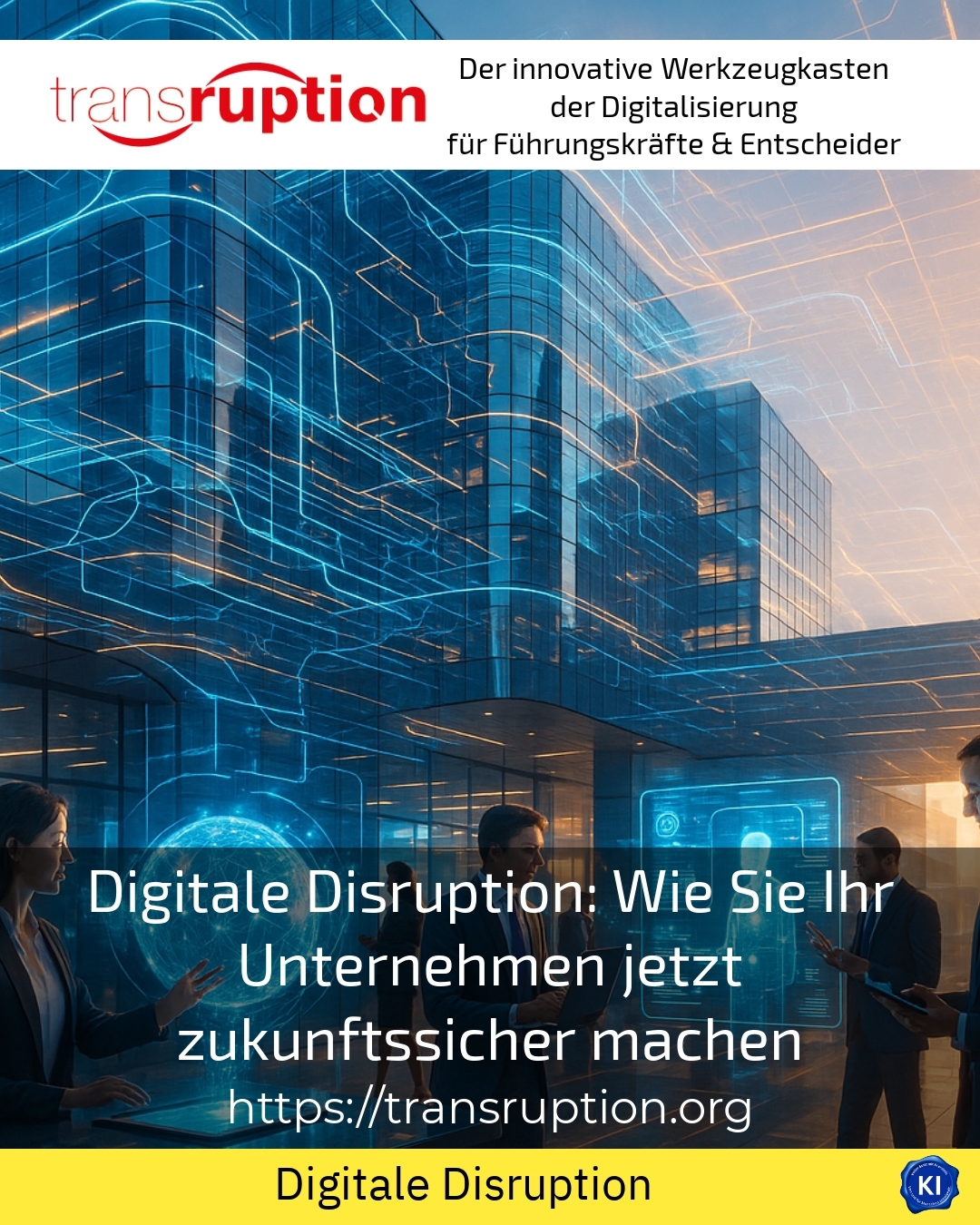The Digital disruption presents companies with significant challenges and at the same time opens up new opportunities to rethink their business models. More and more companies are confronted with radical changes that not only affect technologies, but also profoundly influence processes, markets and customer behaviour. In this dynamic landscape, it is important to develop strategies that make your company future-proof and at the same time create room for innovation.
Digital disruption - understanding a profound change
Under Digital disruption is the radical transformation of markets and business models through the use of new digital technologies. Existing products, services or traditional processes are often fundamentally changed or even replaced. Unlike digital transformation, which usually takes place gradually, disruption leads to comprehensive leap innovations that can reshape entire industries.
For example, Uber's business model has revolutionised the taxi market by connecting drivers and customers directly via a digital platform. Similarly, Airbnb changed the hotel industry by allowing private rooms to be rented out worldwide without the need to own hotels. Netflix also reshaped the entertainment industry by offering films and series on demand instead of on linear television.
These examples show how digital disruption challenges established companies and often forces them to question and adapt traditional offerings.
How companies can respond to digital disruption
So that your company can utilise the opportunities Digital disruption some key measures are important:
- Analyse your own position and digital readiness at an early stage to assess potential and risks.
- Openness to new technologies and business models so as not to be disrupted from the outside, but to play an active role in shaping them.
- Promoting a culture of innovation that supports experimentation and learning experiences.
In the automotive industry, for example, Tesla is driving disruption with electric drives and autonomous technologies. Traditional manufacturers such as Volkswagen and BMW are responding with their own innovations, investing in electromobility and digital services in order to remain competitive.
In the banking and finance sector, FinTech start-ups are establishing digital payment solutions that challenge traditional business models. Banks are supporting this change with digital platforms and partnerships in order to offer their customers modern and secure services.
The combination of brick-and-mortar shops with online retail platforms is also creating new customer experiences in the retail sector. Amazon has set the standards here, which many retailers are now adopting or developing further.
BEST PRACTICE at the customer (name hidden due to NDA contract)
A leading company in the consumer goods industry used digital disruption to completely reorganise its product development and sales processes. The introduction of a digital platform made it possible to record customer wishes in real time and develop customised offers. The result was an agile system that helped the company gain a competitive edge in terms of speed and customer loyalty.
Important impetus for companies in times of digital disruption
In dealing with Digital disruption it is not only important to minimise risks, but also to identify sustainable growth areas. Here are some practical recommendations:
- Pool resources efficiently: Digital platforms make it possible to better utilise existing resources such as vehicles, accommodation or storage capacity. Inspired by models such as Uber or Airbnb, ideas from outside the industry can also be transferred to your own business model.
- Empowering employees: Qualifications and mindsets must be geared towards digital change. Further training and agile working methods are essential in order to be able to react flexibly to new market requirements.
- Creating digital customer experiences: Customer expectations are constantly changing. Intuitive apps, personalised services and seamless communication channels increase customer satisfaction and loyalty.
Even traditional industries such as publishing have been fundamentally transformed by digital media and streaming services such as Spotify and Netflix. This change offers opportunities for new business models, for example with subscription services and individualised offers.
BEST PRACTICE at the customer (name hidden due to NDA contract)
A medium-sized media company modernised its content strategy with the help of digital technologies. With a platform for analysing user behaviour, content could be offered in a much more targeted way, which led to greater customer loyalty and new monetisation channels.
Digital disruption as an opportunity for a sustainable future
Your company can use the Digital disruption as an opportunity. It is important to anticipate changes at an early stage and react flexibly. Innovation management and an open corporate culture are key to not only accompanying disruptive developments, but actively shaping them.
Companies that take up these impulses strengthen their competitiveness and are better able to cushion future crises. Changes in customer behaviour, technological advances and new market developments offer opportunities to first conquer new markets or expand existing ones.
BEST PRACTICE at the customer (name hidden due to NDA contract)
A technology company implemented a transruption coaching programme to actively support the digital transformation. As a result, the organisation was gradually prepared for disruptive innovations and was able to successfully introduce new digital business models more quickly.
My analysis
The Digital disruption is leading to fundamental changes in all sectors. Companies should not see this as a threat, but as an impetus to reinvent themselves. With a willingness to innovate, digital expertise and a clear focus on customer needs, future-proof strategies can be developed. Support through professional partnerships and coaching helps to actively shape change and ensure sustainable success.
Further links from the text above:
Innolytics Digital Disruption
Digital disruption and megatrends in digital marketing
Digital disruption - IT-P GmbH
7 successful examples of disruptive innovations
Digital Disruption - OMR
Disruptive business models: creating new markets
What is digital disruption? - DigitalisationCoach
Disruptive technologies: Examples from Germany
What is disruption and how do I deal with it properly?
For more information and if you have any questions, please contact Contact us or read more blog posts on the topic TRANSRUPTION here.
















